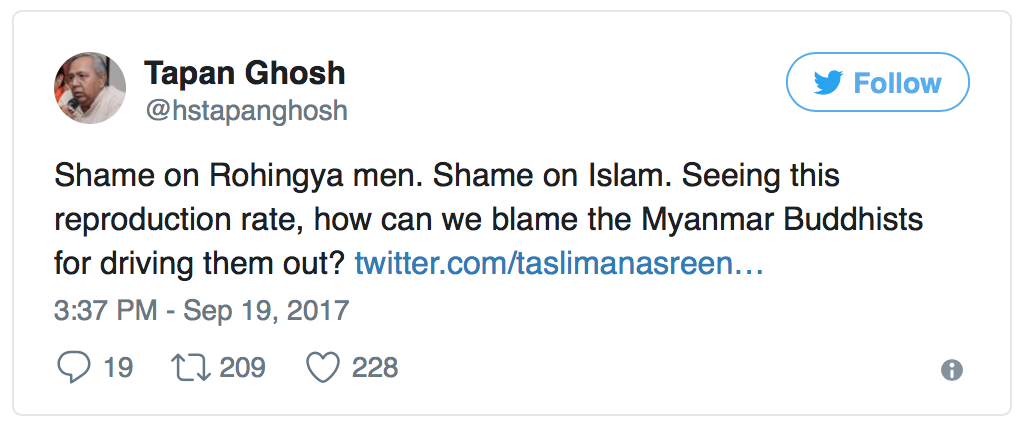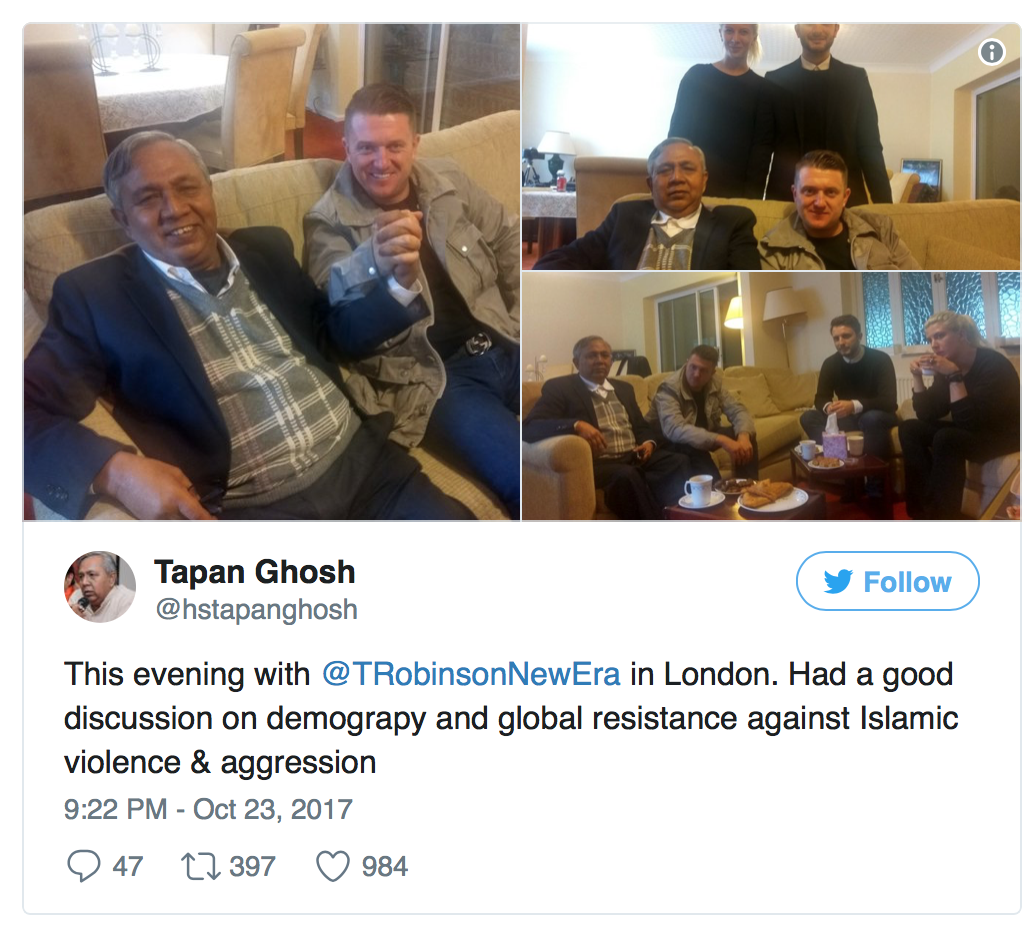Why we should discuss MP Blackman’s decision to let an Anti-Islam extremist speak at a Commons event in parliament.
MP Bob Blackman’s decision to host the anti-Muslim extremist Tapan Ghosh at last Wednesday’s Commons event, called ‘Tolerating the Intolerant’, has sparked tremendous outrage amongst his fellow Tories and the public. How important is it to let the ‘intolerant’ have their say?
Ghosh, who was listed as ‘keynote speaker’ for one of last Wednesday’s Commons events, is a Hindu nationalist and the founder of the far-right Hindu Samhati party. Not only did Ghosh publicly state that ‘all Muslims are jihadists’ last year, he also recently sparked outrage after praising the slaughter of the Rohingya on Twitter.

On Monday, the Hindu nationalist – who recently called for the UN ‘to control the birth-rate of Muslims’ – appeared on a YouTube show hosted by EDL founder Tommy Robinson.

While Home Secretary Amber Rudd assured the Huffington Post UK that “she was not present when Ghosh spoke at a later committee room event [and that] she did not agree with his views,” Labour MP Wes Streeting told the Middle East Eye website that Ghosh “isn’t welcomed to parliament again.”
But Bob Blackman, the Tory back-bencher who sits on the communities and local government committee, refused to apologise for hosting the anti-Islam extremist, telling the Times yesterday: “In our commitment as a nation to fight extremism and radicalisation it is important to hear the voices of suppressed minorities.”

‘Free Speech*Conditions apply’. Photo credit: flickr.com
All outrage and apologies from politicians like Rudd and Streeting aside, the issue Blackman is addressing with this statement is an interesting one. And possibly one of the biggest issues of our time. Extremists, both far-right and Islamist, are on the rise. In June, the Independent reported that the number of suspected far-right extremists skyrocketed by 30% in the past year.
Last month, Germany’s national election resulted in the country’s right-wing party AfD securing 13% of the vote; marking the first time in almost six decades that an openly nationalist party enters the Bundestag. And, only a couple of weeks ago, Austria elected their new chancellor Sebastian Kurz, who has anti-EU and anti-migrant policies at the top of his agenda.
It is this rise of extreme views appearing from all corners of the Western World that has sparked many debates in the UK: do we need stricter regulation on freedom of speech to protect minority groups from religious and racial discrimination and hate? Or could the elimination of extremist voices potentially be counter-productive?
As the Guardian journalists Helm and Townsend put it last year, we might be running the risk of “driving extremists into the shadows and underground.” But, we are also running the risk of providing a platform for unacceptable, clearly discriminating views.
Steven Barnett, Professor at the University of Westminster and media policy and regulation expert, told the Voice of London: “However unacceptable people’s views might be, it is important to allow them to speak their mind; just so that we can challenge them and point out the irrationality, or the unacceptability, of what they are saying.”
So, should we indeed ‘tolerate the intolerant’? Where do we draw the line? In light of recent developments in Theresa May’s efforts to implement stricter regulations on social media content, the MP’s decision to give an an anti-Islam extremist a platform certainly seems to hit a vulnerable point of discussion both within the Tory Party and in our society.
Read also: the antidote to extremism.
Words: Lotta Behrens | Subbing: Pamela Machado
